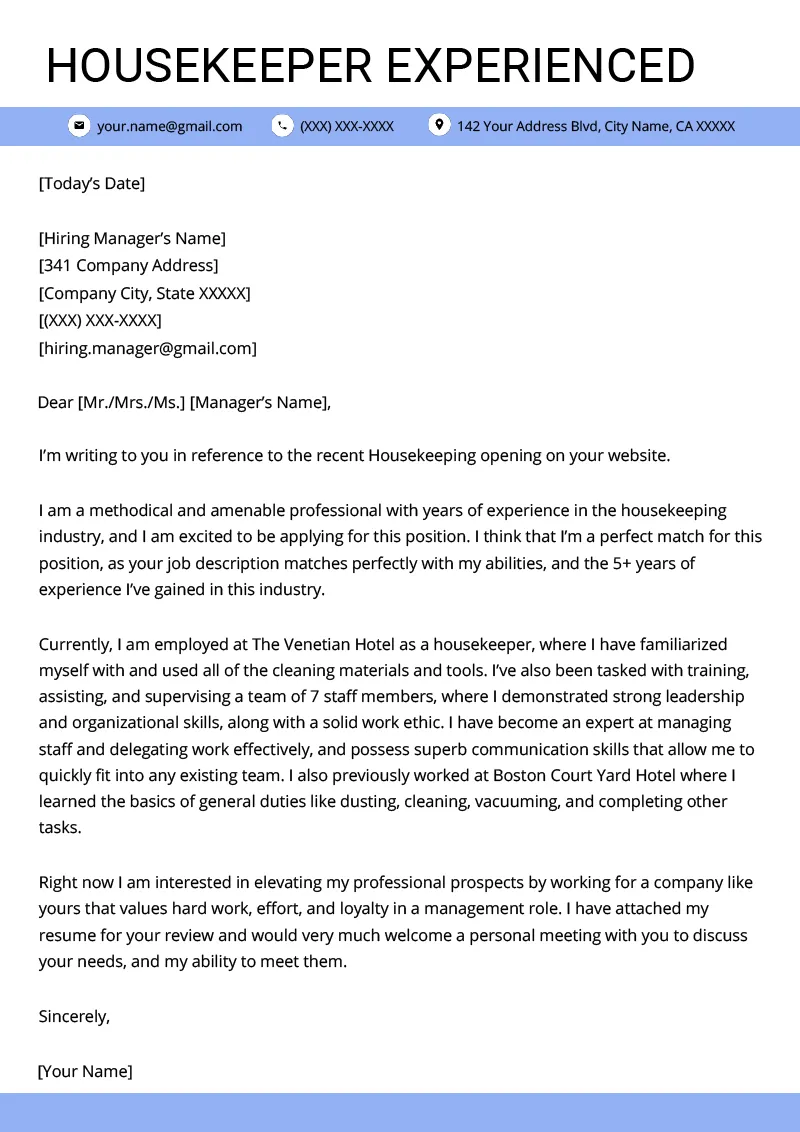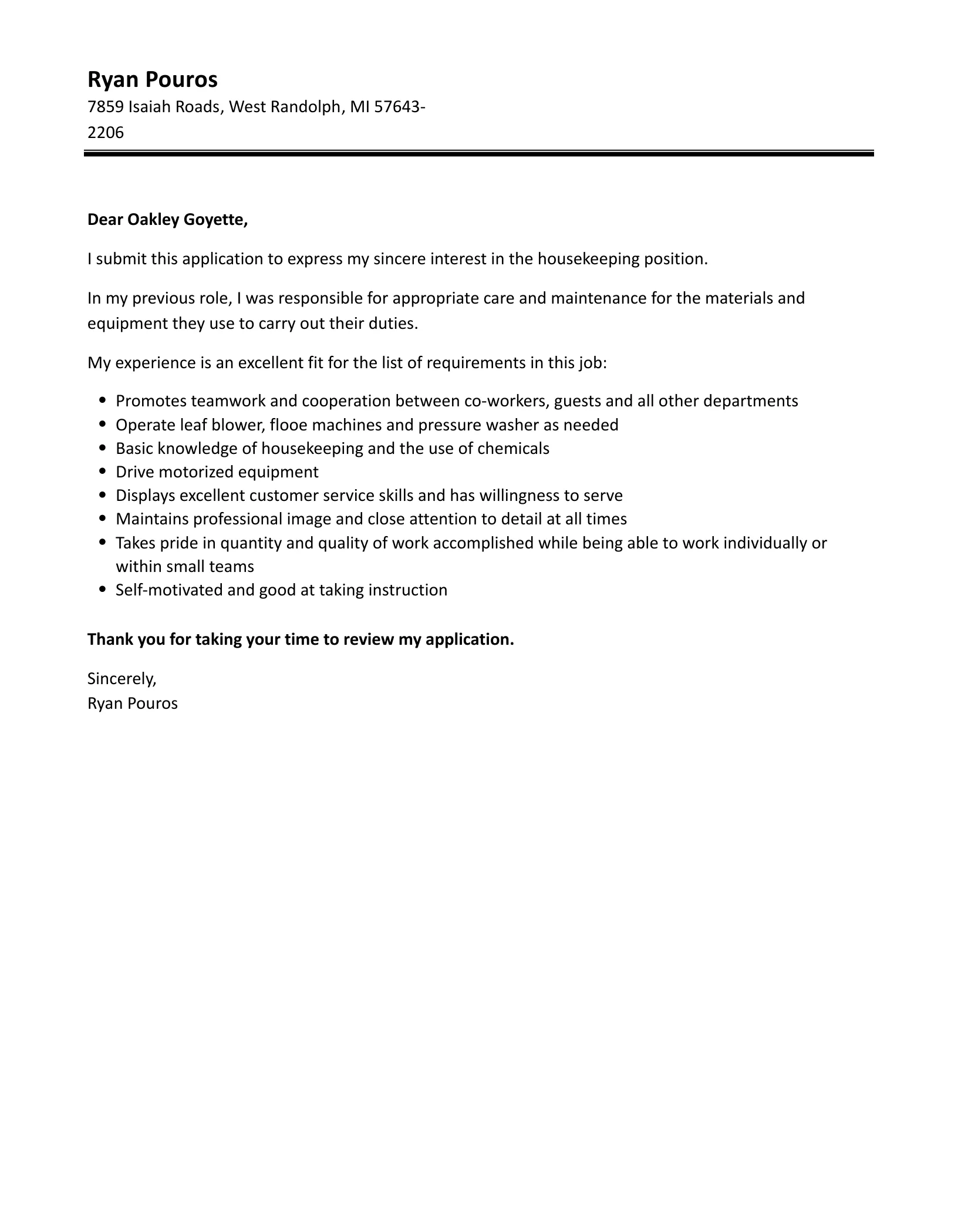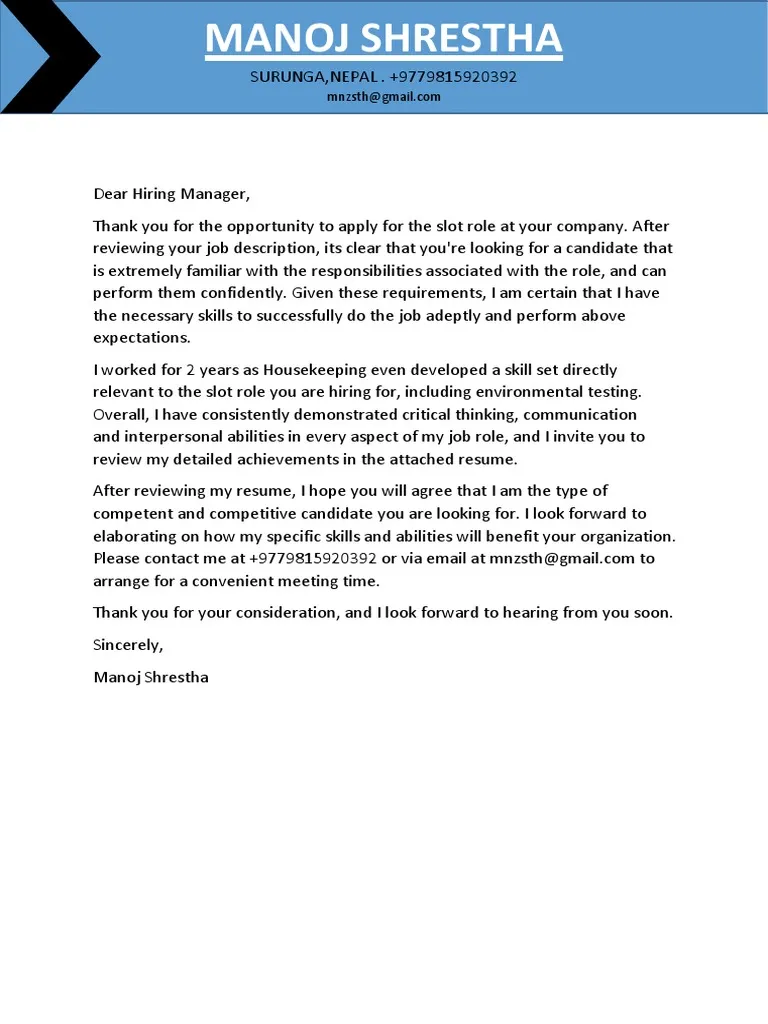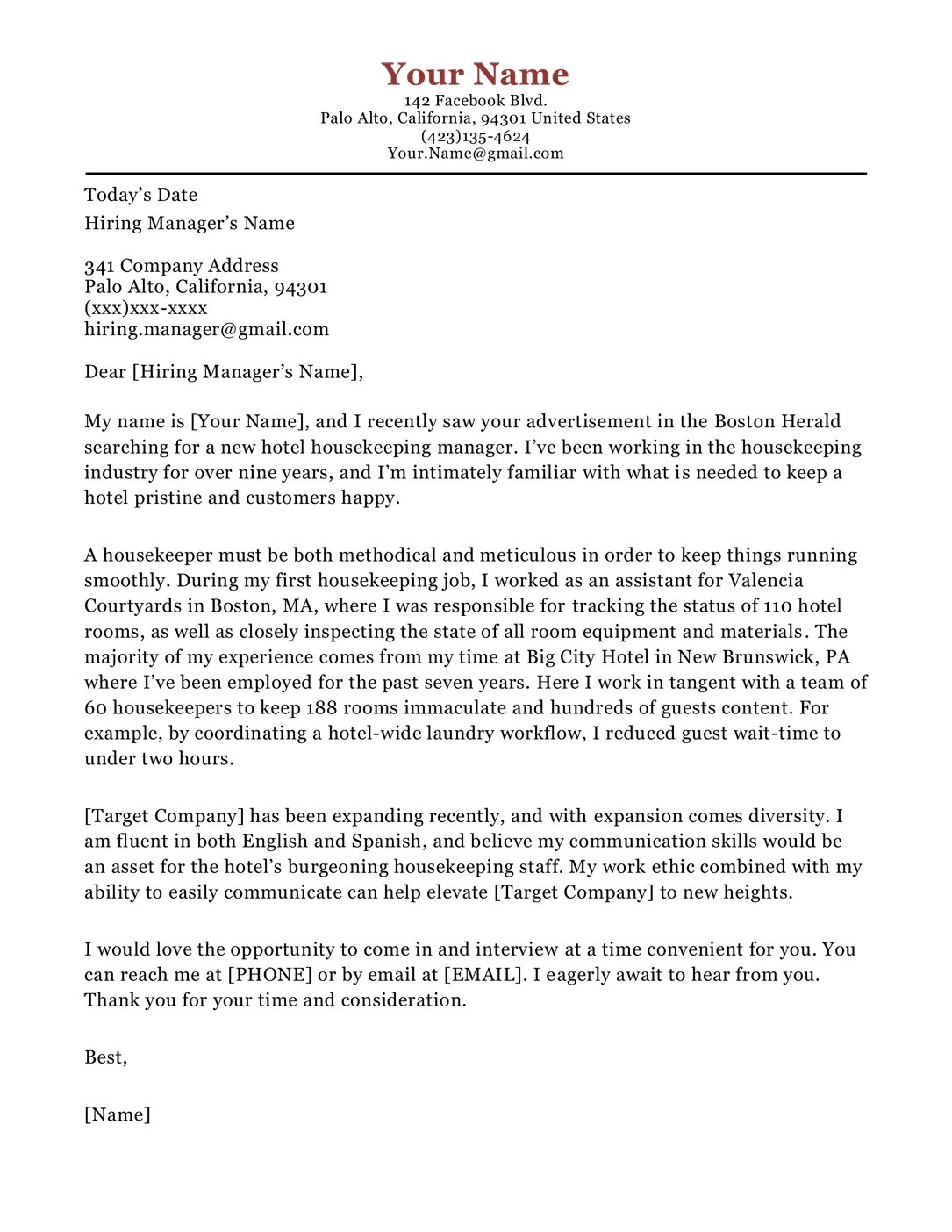Writing a compelling housekeeper cover letter can significantly increase your chances of landing your dream job. A well-crafted cover letter is your first impression and offers an opportunity to showcase your skills, experience, and personality. It’s more than just a formality; it’s a chance to make a strong case for why you are the ideal candidate. Many applicants underestimate the importance of a strong cover letter, but it is an essential tool for any job search in the housekeeping industry, where attention to detail and a proactive approach are highly valued. This guide provides essential tips to help you create a cover letter that stands out and gets results.
Highlighting Skills in Your Housekeeper Cover Letter
Your housekeeper cover letter must highlight the skills that make you an excellent candidate. Housekeeping jobs often require a diverse set of skills, from cleaning and organization to communication and time management. Therefore, carefully review the job description and identify the key skills the employer is seeking. Make sure to provide examples of how you have demonstrated these skills in previous roles. This section of your cover letter is about demonstrating to the hiring manager that you are the person who can execute the duties of the role. Consider the details that show your ability and the ability to excel in the position.
Showcasing Relevant Experience
Detailing your experience is crucial. Mention previous housekeeping roles, including the duration of your employment and the specific tasks you performed. Focus on experiences that align with the job description’s requirements. If you’ve worked in various settings, such as private homes, hotels, or commercial properties, specify these. Focus on transferable skills, such as inventory management, laundry, and any specialized cleaning techniques you know. Mention the tasks you managed and what you did on a daily basis to keep the home clean and healthy for the inhabitants.
Quantifying Accomplishments

Whenever possible, quantify your accomplishments. Instead of just saying, “Maintained cleanliness”, describe how you maintained the cleanliness by using certain practices and methods. For example, you could say, “Consistently maintained cleanliness of a 5000 sq ft residence, ensuring all areas met the highest standards of hygiene.” Quantifying your achievements provides concrete evidence of your abilities and makes your cover letter more impactful. Consider including metrics such as the number of rooms cleaned, the frequency of tasks performed, or any cost-saving measures you implemented.
Tailoring Your Cover Letter to the Job
Generic cover letters rarely impress. You must tailor your cover letter to each specific job application. This shows employers that you are genuinely interested in the position and have taken the time to understand their needs. Carefully review the job description and identify the key requirements, skills, and qualifications the employer is seeking. Customizing your letter demonstrates that you are not only a qualified candidate, but a candidate who is committed to the role and willing to invest in its success. Focus on highlighting the skills and experiences that match the specific requirements outlined in the job description.
Researching the Employer
Before you start writing, research the employer. Understanding their values, mission, and the type of properties they manage will help you tailor your cover letter more effectively. Visit their website, read reviews, and check their social media profiles. This research allows you to demonstrate your genuine interest in the company and helps you align your skills and experience with their specific needs. Consider mentioning any company values or initiatives that resonate with you, to show that you have really done your homework.
Matching Skills to Job Requirements

In your cover letter, directly address the requirements listed in the job description. Use keywords and phrases from the job posting to highlight your relevant skills and experiences. For instance, if the job requires experience with specific cleaning products or equipment, mention your familiarity with those tools. Provide specific examples of how you’ve successfully performed similar tasks in the past. If the job description emphasizes attention to detail, give an example of how you have demonstrated that in a previous role.
Formatting and Structure for Housekeeper Cover Letters
A well-formatted cover letter is easy to read and makes a positive impression. Use a professional font like Arial or Times New Roman, and ensure your letter is well-organized with clear headings and paragraphs. Maintain a consistent style throughout the document, with a professional tone that demonstrates respect and professionalism. The appearance of your cover letter reflects your attention to detail and your commitment to presenting yourself in the best possible light. A poorly formatted cover letter can give the impression that you lack the attention to detail.
Creating a Strong Opening
Your opening paragraph is crucial because it sets the tone for the rest of the letter. Start by stating the position you are applying for and where you found the job posting. Then, immediately capture the reader’s attention by highlighting your key qualifications and expressing your enthusiasm for the role. A strong opening statement grabs the reader’s attention and makes them want to read more. Consider mentioning a specific skill or experience that directly matches the job requirements to make an immediate connection with the hiring manager.
Structuring Body Paragraphs Effectively

The body of your cover letter should provide more detail about your skills, experience, and accomplishments. Use clear and concise language and organize your thoughts into well-structured paragraphs. Each paragraph should focus on a specific aspect of your qualifications, such as cleaning techniques, time management skills, or your ability to work independently. Use bullet points to highlight key achievements and quantifiable results. This structure makes it easier for the reader to quickly grasp the key points.
Writing a Compelling Closing
Your closing paragraph should reiterate your interest in the position and summarize your key qualifications. Thank the employer for their time and consideration, and express your willingness to discuss your qualifications further in an interview. Include a call to action, such as, “I am eager to learn more about this opportunity and discuss how my skills and experience can benefit your team.” Ensure you include your contact information for easy reference and response. A strong closing leaves a lasting positive impression and encourages the employer to take the next step.
Proofreading and Editing
Before you submit your cover letter, proofread it carefully. Errors can undermine your credibility. Check for grammatical errors, spelling mistakes, and punctuation errors. Have a friend or family member review it as well, as a fresh pair of eyes can catch errors you might have missed. Proofreading demonstrates your attention to detail and commitment to excellence. Proofread for any typos. Even small mistakes can make a negative impression. Using a grammar checker can help, but it is not a replacement for careful review.
Checking for Grammatical Errors

Grammatical errors can make your cover letter appear unprofessional. Use a grammar checker and carefully review your letter for any errors in sentence structure, verb tenses, and subject-verb agreement. Make sure all your sentences are clear and concise, and the language is appropriate for a professional setting. Proofreading is a crucial step in ensuring your cover letter leaves a positive impression.
Ensuring Clarity and Conciseness
Clarity and conciseness are essential for a successful cover letter. Avoid jargon and complex sentence structures. Instead, use clear, straightforward language that effectively conveys your message. Keep your sentences and paragraphs short, and focus on the most relevant information. A clear and concise cover letter is easier for the employer to read and understand. Ensure that every sentence in the cover letter contributes value and avoids any unnecessary information.
By following these tips, you can create a housekeeper cover letter that highlights your skills, experience, and qualifications. Remember to tailor your letter to each specific job application, and always proofread it carefully. With a well-crafted cover letter, you’ll be well on your way to landing the perfect housekeeping job. Good luck!
